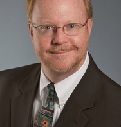| Fri. July 18, 2025 | |

|
|
|
 By James Stockmal As I write this, my city is abuzz with the visit by Pope Francis. What will he say to Congress, the President, the 300 homeless that he will eat lunch with? I believe he will be himself and speak from the heart and challenge us all to act in some way grounded in his message on mercy. I have been engrossed in the plight of the Syrian (and other) immigrants and what might be done in the spirit of mercy. Governments have taken different positions and approaches. Non-government organizations (NGOs) have also been engaged. The crisis has, is and will remain a big challenge. It is complicated. Can we do anything differently? In the spring of 2014 I wrote a piece on the Amani Social Innovation Framework (ASIF) and how social entrepreneurs are applying innovative thinking to tricky problems and having a positive impact (The Strategic Edge). Is there an opportunity to apply their approach and enlist a global network of social entrepreneurs to address the crisis? Could private – public partnerships work with welcoming governments to enable more efficient and effective resettlement? Could, for example, technology be used to help assess the skill sets of the immigrants and match them with businesses or towns with unmet needs? Could a cadre of immigrant entrepreneurs open small businesses serving their local communities and help make connections across borders? Can we help those countries with aging workforces plan for the incorporation of the skilled immigrants where they are most needed? Can profit from these ventures be reinvested in the communities or be used to fund other ventures? Social entrepreneurism does have some challenges. Some have criticized organizations, like Teach Across America, for being too reliant on government funding and not being effective in measuring the impact of their programs. Scale and sustainability of social entrepreneurial ventures are other challenges. Can an innovative program in Dresden be scalable across Germany? Can micro-financing from Grameen Bank help Afghani bakers establish local establishments in Stockholm? Will policy makers hinder or promote new social innovation? Muhammad Yunus’s Grameen bank has overcome many of these challenge and planners should be able to learn valuable lessons to help the organizations in this emerging social network have impact that is sustainable for the long haul. What we may need to do is leverage the ASIF model, and first, enlist those who have a burning to address the refuge problem. We need to gather information as part of the sensing process to understand the full range of issues impacting the situation. We need to continually ask pertinent questions to not only understand the root causes, but rather to challenge our collective thinking about why something would or would not work. We need to leverage an expanded social idea network, leveraging collaboration technology perhaps, to uncover creative ideas to experiment with. We need to measure the impact of the experiments and expand those things that work and quickly curtail what is not working. The process will be messy. But I am reminded of Vince Lombardi who said, “Perfection is not attainable. But if we chase perfection, we can catch excellence.” And perhaps we can do this in the spirit of mercy as Pope Francis has called us all to do in the coming Year of Mercy. What a great way to begin – starting with perhaps one of biggest challenges of our times – the refugee crisis. Think big. Think socially. I am. James Stockmal is Vice President, the Association for Strategic Planning. He serves as a strategic planning consultant to government agencies, non-profits, and commercial organizations.
|
|
| Contact Us | About Us | Donate | Terms & Conditions |
|
All Rights Reserved. Copyright 2002 - 2025
